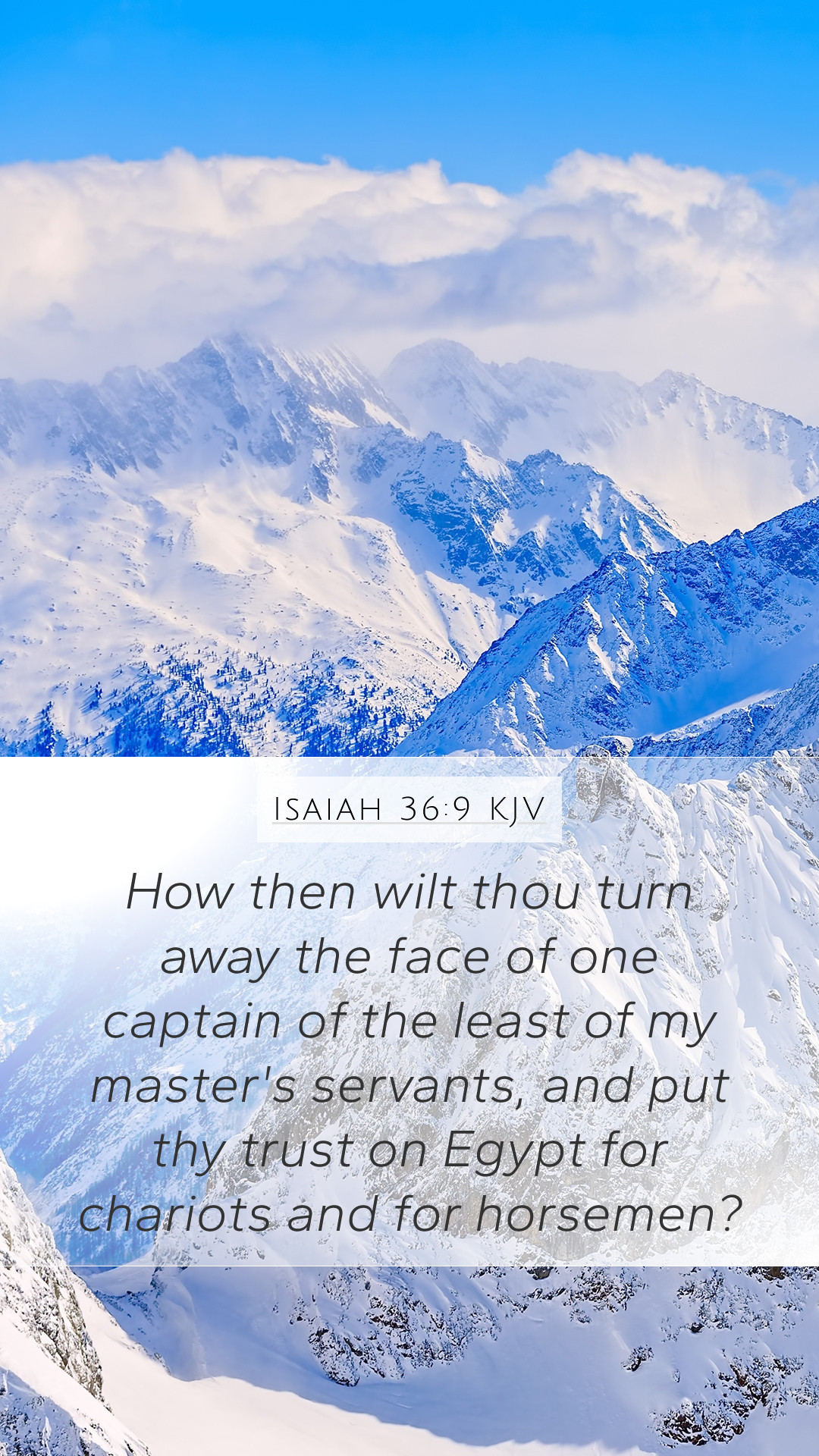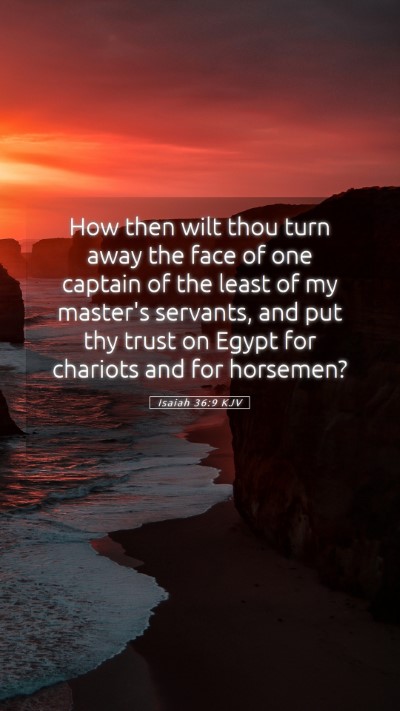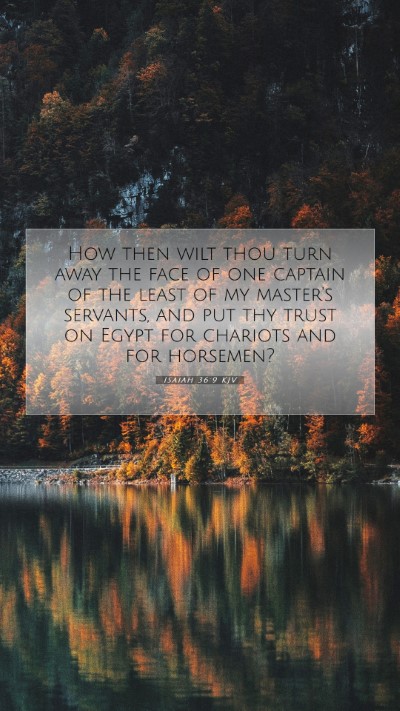Understanding Isaiah 36:9
Isaiah 36:9 states: "How can you repel one officer of the least of my master's servants, and yet you rely on Egypt for chariots and for horsemen?" This verse comes from a powerful narrative in which the Assyrian king, Sennacherib, is taunting the people of Jerusalem, questioning their reliance on earthly powers, specifically Egypt, for their defense against his impending invasion.
Bible Verse Meaning
This verse encapsulates a critical moment where the Assyrian representative—Rabshakeh—dismisses the military strength of Judah, emphasizing the futility of trusting in human alliances, particularly against the might of Assyria.
Commentary Insights
-
Matthew Henry:
Henry observes that Rabshakeh sought to instill fear by highlighting the weakness of the Judean defenses. His rhetoric was aimed at undermining the faith of the people in their God, reminding them that their reliance on Egypt was misplaced and futile.
-
Albert Barnes:
Barnes elaborates on the futility of placing one's hope in Egypt, emphasizing that their reliance on external powers for salvation was both misguided and dangerous. He points out that Egypt's historical inability to assist effectively is a theme that runs throughout the prophetic writings.
-
Adam Clarke:
Clarke underscores the specific mention of "one officer" as a striking reminder of the limited capability of Judah's defenders compared to the might of Assyria. He highlights the tactical psychological warfare employed by Rabshakeh, aimed at demoralizing the people and turning them away from their divine source of strength.
Historical Context
Understanding the historical context of this passage is essential for a complete biblical exegesis. During this time, Judah was threatened by the vast military forces of Assyria, and many in Judah erroneously believed that forming an alliance with Egypt would provide the necessary military support.
This verse serves as a critical commentary on the dangerous nature of seeking security in unreliable alliances rather than in God, which is a recurring theme throughout the Scriptures. The challenge laid before Judah exemplifies the trials of faith faced by God's people throughout biblical history.
Applications for Today
Isaiah 36:9 provides valuable lessons applicable to contemporary life. It encourages individuals to consider the nature of their trust and reliance on worldly things versus divine assistance. Here are some key applications:
- Trust in Divine Power: Just as the people of Jerusalem were called to trust God's provision, modern believers are encouraged to rely on their faith rather than worldly solutions.
- Recognizing True Strength: A reminder that human institutions may fail, but true strength comes from God.
- Assessing Our Alliances: Reflecting on who and what we depend on for support in difficult times—whether it be friends, governments, or resources—can reshape how we approach crises.
Bible Cross References
- Isaiah 31:1: "Woe to those who go down to Egypt for help…" - A clear reiteration of the dangers of seeking foreign assistance.
- Psalms 20:7: "Some trust in chariots, and some in horses; but we will remember the name of the Lord our God." - A statement contrasting human reliance and spiritual trust.
- Jeremiah 17:5: "Cursed is the man who trusts in man and makes flesh his strength..." - An exploration of the consequences of misplaced trust.
Conclusion
Isaiah 36:9 serves as a poignant reminder of the spiritual and practical implications of placing our trust in God rather than in worldly alliances or strengths. The analysis and commentary surrounding this verse encourage deeper reflection and understanding of how Scripture can be applied to current life situations.
This comprehensive examination sheds light on the meaning of Bible verses, and how they can play a transformative role in individuals' lives when understood within their historical context and spiritual significance.


